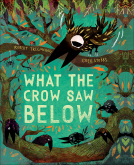
Good Will Come From the Sea
by Christos Ikonomou
This title was previously available on NetGalley and is now archived.
Send NetGalley books directly to your Kindle or Kindle app
1
To read on a Kindle or Kindle app, please add kindle@netgalley.com as an approved email address to receive files in your Amazon account. Click here for step-by-step instructions.
2
Also find your Kindle email address within your Amazon account, and enter it here.
Pub Date Mar 12 2019 | Archive Date Oct 22 2018
Talking about this book? Use #GoodWillComeFromTheSea #NetGalley. More hashtag tips!
Description
Seeking to escape the paralyzing effects of the Greek economic crisis, a group of Athenian friends move to an Aegean island in the hopes of starting over. Viewed with suspicion and disdain by the locals, they soon find themselves enmeshed in the same vicious cycle of money, power, and violence they thought they had left behind.
Advance Praise
"In much the way John Steinbeck laid open the migrant worker culture of mid-century California, Ikonomou exposes us to the realities of Greek poverty, the bitter taste of politics, and the generational divide. These stories are pitch-perfect, with sullen anger, wit, sharp humor, and tragicomedy captured in sharply crafted scenes that linger in the memory."--Los Angeles Review of Books for Something Will Happen, You'll See (Archipelago Books, 2016)
"A gripping collection of short stories... In Ikonomou's concrete streets, the rain is always looming, the politicians' slogans are ignored, and the police remain a violent, threatening presence offstage. Yet even at the edge of destitution, his men and women act for themselves, trying to preserve what little solidarity remains in a deeply atomized society, and in one way or another finding their own voice. There is faith here, deep faith--though little or none in those who habitually ask for it."--Mark Mazower, The Nation
"Something Will Happen is a heart-breaking and essential portrait of Greece's modern despair, and while there are hopeful moments scattered throughout, the ones that ring truest are apocalyptic."--The Paris Review
"The seamlessness with which the past breaches the surface of the present is astounding. Reading this book makes you read into yourself."--Zyzzyva
"Ikonomou's Something Will Happen, You'll See depicts many lives, of all ages, that have been blighted by financial hardship. The book stands with Rafael Chirbes's On the Edge as one of the remarkable literary interpretations of the recent global downturn."--Christopher Byrd, Barnes and Noble Review
Available Editions
| EDITION | Other Format |
| ISBN | 9781939810212 |
| PRICE | $18.00 (USD) |
| PAGES | 250 |
Average rating from 8 members
Featured Reviews
 Keith C, Educator
Keith C, Educator
Four loosely linked stories focused on a group of Greeks who have moved to an island to work the land in the wake of the Greek economic crash, this is a heartfelt, bitter and deeply intellectual analysis of the betrayal of the people of a nation - by the unscrupulous, the selfish and the greedy. Idealism cannot win, it seems, but perhaps, only perhaps, there is some hope and it will come from the sea.
 Brandon C, Reviewer
Brandon C, Reviewer
This is a mesmerizing collection of four long stories by the Greek writer Christos Ikonomou, lucidly translated by Karen Emmerich.
Each of the stories is set on a small Greek island not far from Athens-- a setting which might be a subtle nod to the island of Arcadia used as a backdrop for heroic stories as far back as Virgil. Ikonomou transforms the island into a ruthless and unforgiving place where Athenians fleeing the economic and political crisis in the capital self-exile themselves among the locals, dubbed the Rats. There's a deep undercurrent of division between the two types of Greek--the Athenians are referred to as Foreigners, despite the idea that everyone is a Greek.
Each of the stories follows a loose formula which ends in a confrontation between Foreigners and Rats. In the first story, "I'll Swallow Your Dreams," a group of Athenians retreats to the island caves to start anew, having no where else to go. A man named Tasos squares off with a Rat and after his public humiliation, flees into a cave where he is never recovered. The titular story "Good Will Come from the Sea" follows the same premise--a father seeks restlessly for the son he's lost--while the middle story "Kill the German" spins a whole story about the indecision of an invalid named Chronis whether to save a woman from rape, or worse. The final story "Kites in July," follows a young couple whose dreams of owning and running a restaurant are cut short when their property is burnt down by the island's natives.
Ikonomou's stories are about failure, about recognizing your impotence, admitting defeat, making a fresh start even when you have nothing to start with. He delivers his stories in chapters of long unbroken paragraphs constructed as rambling monologues, although they are heavily focused and filled with something like revelation. The narrator of the first story recalls a conversation with his son when he stumbles upon the idea that if you haven't felt like a coward, you won't ever be a man. Later on, hate is compared to the rat who eats your guts in the Chinese basket torture.
The writing is surprisingly funny and can turn on a dime. In the same story, the Foreigners are having a tense moment with the Rats when the narrator suddenly breaks in: have you ever seen fish blasted out of the water with dynamite?
Ikonomou's humor is lucid and fine and independent of mockery or irony. I find this refreshing, not only in that it makes the humor somehow cleaner, more rooted in human nature such as in "Kites in July" when, after losing everything, the characters reach a kind of humble acceptance but are not so enlightened that they don't blow off some steam towards the Rats. It also leaves open the possibility of hope, although hope here is not so much resistance to hopelessness as it is the act of recognizing the futility of your situation and having nothing else to turn to.
Would absolutely recommend to a friend.
Reviewed for Netgalley.
 Sarah Corbett M, Reviewer
Sarah Corbett M, Reviewer
Thank you, Net Galley and Archipelago Books. Ikonomou is a Greek Faulkner!
I will be thinking about these loosely intertwined long, short stories for some time to come. I was awestruck to the point of borrowing his other book, Something Will Happen, You'll See, from my library. Special shoutout to the American translator, Karen Emmerich, who captures American slang in this remarkable book. FIVE BIG STARS
Archipelago Books says: Good Will Come From the Sea is a dirge for the Greek economic crisis and the devastation it has wrought, a profound meditation on the nature of justice in an unjust world. ... a tender and defiant song of loss, a study of poverty's toll on the human soul.
Hard-hitting and poignant, Good Will Come From the Sea is a collection of loosely linked stories set after the financial crash in Greece. There are some very relevant themes within this book for today's times. The text is powerful in the way it highlights the utter powerlessness of its characters, their despair and ultimately their resilience.
Poetic and haunting, Good Will Come From the Sea will linger a while after the final page.
Highly recommended.
With thanks to the publisher and Netgalley for the arc.
 Mandy J, Reviewer
Mandy J, Reviewer
As an exploration of the Greek economic collapse this makes for some pretty grim reading. Set on an unnamed imaginary island in the Aegean, a microcosm of the whole of devastated Greece, four intertwined short stories portray the lives of migrants and locals struggling to survive poverty, corruption and despair. Draconian austerity measures have forced many Athenians to migrate to the island where they are resented by the locals and seen as invaders. The Athenians see the locals as “rats” who maintain the status quo with cartels and organized crime. There’s none of the romance normally associated with idyllic Greek islands to be found here, as the “rats” trample on the dreams and aspirations of the newcomers, often by violent means. After the EU bailout, severe austerity measures were imposed and the human cost of that is exemplified here. The displaced Athenians have been forced by unemployment to flee to the island but are shown no sympathy. It’s a bleak world they have arrived in. The book goes straight to the heart of the Greek economic collapse, and there seems to be little hope – even though one or two of the stories do perhaps show a glimmer and possibly the title suggests that good might come from the sea, as it has at times during the country’s history. A depressing but powerful story of loss, desperation and frustration and a strong sense of just what it’s like to live in a country gripped by economic crisis.


















